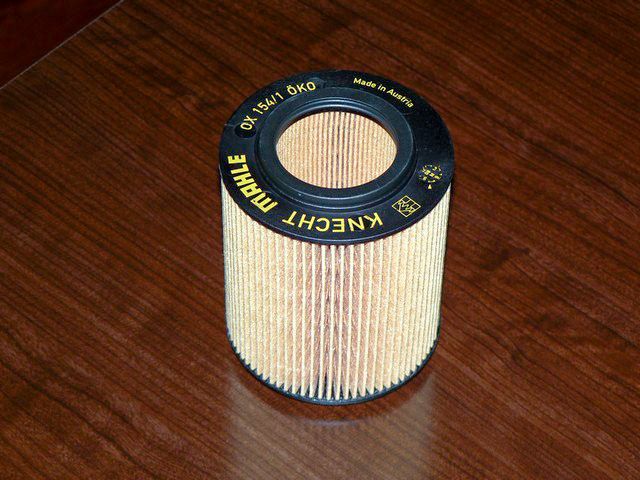Originally Posted By: Quattro Pete
Originally Posted By: Russell
Mahle uses a metal top/bottom while Mann uses a glued construction.
I think this varies by model. The Mahle filter in my application (M54 engine) uses plastic top/bottom.
you guys think there is any difference in quality between the MANN, Hengst and Mahle filters that you can buy for around $5, to the actual Mann, Hengst, Mahle ones that are in Actual BMW box, BMW OEM, that are around $9 to 12 dollars.
From my experience with cutting open and comparing regular Mann or Hengst filters versus the OEM mercedes box (Mann or Hengst inside , but also with mercedes star on the filter and on the box) there is a difference between the filter media, although the outside construction of the filters were pretty much exactly the same.
The same is true with the Toyota OEM Denso filters that i get, they are also a different filter media than the regular off the shelf Denso ones you can buy for the same application.
I know a lot of people just buy regular Mann, Hengst or Mahle and believe that they are buying the exact same OEM quality filter (and they might be right for some applications, not trying to start a war here), but as for my experience with the Toyota OEM denso filters 90915-20004, as well as the Mercedes OEM Mann filters 617 184 01 25 versus the regular Mann fitlers you can get for the same application part number PF1055/1... there is a difference between OEM filters (in media quality at least) and the aftermarket filters of the same OEM brand manufacturers (i.e. Denso, Mann, Hengst, Mahle, etc..).
There's plenty of discussion about the OEM toyota denso filter on a lot of the toyota/Lexus boards and they have all come to the same conclusion that toyota OEM denso is different media than regular off the shelf Denso.
I know it's a good feeling to think that you are buying the same exact filter/product that BMW, or VW or Audi sells without their 100-200% mark-up when they put the same filter in one of their boxes and call it OEM BMW, MBZ, or VW part, but I don't think this is true for all applications. while there might be a few applications where this is the case, where you are buying virtually the same exact thing, more often than not, there's a difference in filter media. Even though the OEM filters are made by same company, they tend to cut corners whenever they possible can, and make their aftermarket filters at a lower quality level than their OEM customers (toyota, mercedes, etc..) demand for their own OEM filters.


